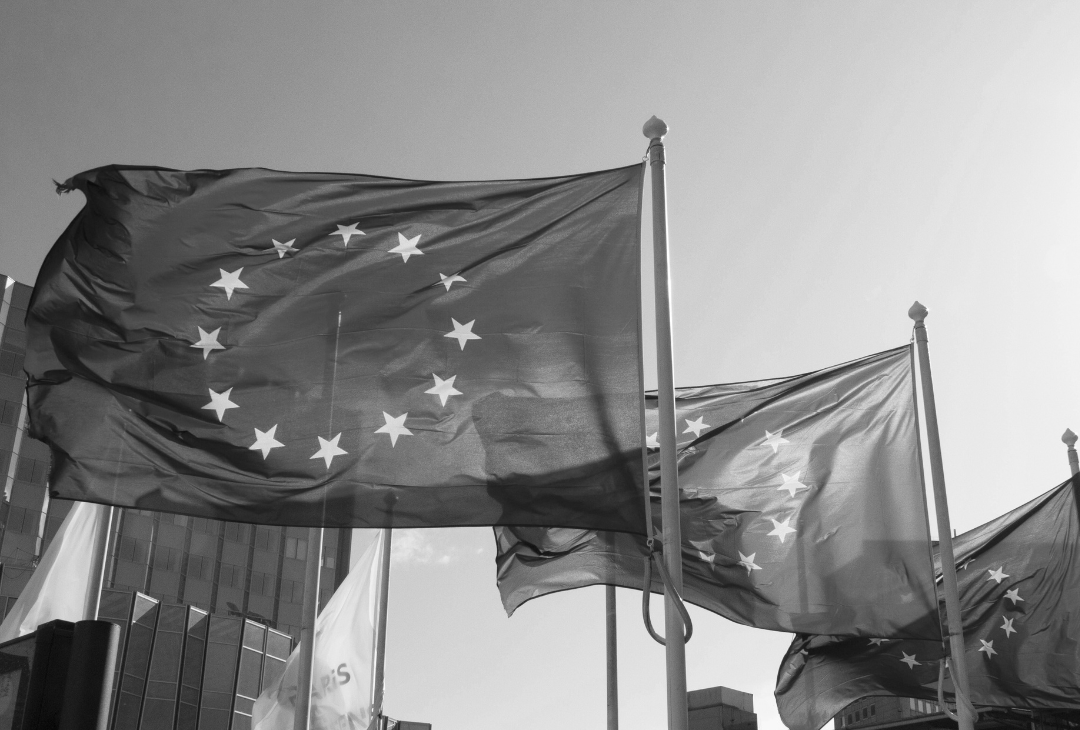2020 Big Picture Outlook: Interview with Frank Suess
According to Frank R. Suess, CEO and Chairman of wealth management group BFI Capital Group AG, the re-acceleration of the global economy will be temporary at best. The problems weighing down on the global economy will force central bankers to continue their easy money policies.
Financial markets will continue to benefit from that, at least for a while, until a severe correction hits, the odds of which are currently vastly underestimated. Investors need to actively prepare for this scenario. Frank states that: “Gold will continue to rise like a buoy in a sea of liquidity. In that sense, I think it represents a true store of value, one rising against declining paper-based currencies and securities.”
In this interview, conducted by Scott Schamber, Frank gives us his outlook for 2020. Even though he is generally reluctant to make predictions and he always advises against attempts to “time the market”, systematically investing in a disciplined manner and managing risks does require a good look at the bigger picture of what might lie ahead.
Frank, despite recent geopolitical escalations, stock markets have held up quite well. Where do we stand in the financial market cycle today?
FRS: We stand at the very far end of the credit and business cycle. Globally, economic growth remains subdued. Growth in financial markets and in corporate profits has been much slower than one might have expected after the dovish pivot of the US Federal Reserve. The Fed injected large amounts of liquidity since last September. Global dollar liquidity increased sharply toward the end of last year. And yet, all that was achieved was an extension of somewhat positive markets.

Source: IAV, INTUITIVE FINANCE, Bupple Update
It is correct that the trade tensions between the U.S. and China have calmed down a bit, but I consider that a temporary ceasefire at best. What has been propping up markets over the past months is simply the extremely low interest rates across the globe. While there appears to be a new consensus that global growth will re-accelerate, I remain very skeptical and I think risk management should be a priority for equity and bond investors. On the other hand, I think the new cycle for precious metals has just begun and smart money is flowing into gold.
We’re experiencing one of the longest global bull markets ever. Yet, while the stock market continues to rise, investor sentiment has been relatively bearish.
FRS: Yes, a certain level of caution has been established, possibly proving that investors may have indeed learned a thing or two from history. However, I wonder whether they are in fact prepared for the crisis that will undoubtedly hit at some point – and hit hard. At some point, the current risk aversion will react to the fundamental weakness in the global economy and result in a super explosive correction.
The key fundamentals of this economy, in my view, are hyper-extended and ready to snap - interest rates, market prices, private and public debt. Also, we are in the middle of numerous shifts that are starting to have an impact. Most importantly, demographic realities and technological advances are challenging established business models and the structure of society itself.
You seem to expect a severe crisis. How big of a market correction are you thinking of?
FRS: I think we are living in a period that faces an unprecedented cocktail of risk factors and extreme monetary policies. Therefore, I would not be surprised by an extreme aftermath.
However, even in normal historic terms, you could easily expect a very substantial mid-term correction after this long and artificially extended “party”. If you look at the last two recessions – depending on the markets – we witnessed corrections of 50% - 70%. In my view, a price correction of at least 50% appears to be an empirically based and reasonable probability.
In your view, how important a factor are geopolitical conflicts?
FRS: Generally, most geopolitical tensions have a temporary impact. The price of crude oil, for instance, benefitted from the recent turmoil in the Middle East. And, one could expect that military escalations might temporarily push oil prices higher for a bit. However, looking back, the two Gulf wars did not have much of a sustained influence on financial markets.
The political topics of interest this year will probably revolve around the tensions between America and Iran, the US presidential election, and possibly the impeachment of President Trump. I don’t expect these topics to have much of an impact on financial markets, however.
There are bigger geopolitical changes to consider too: the possible longer-term shift of power from America to China, the often pronounced but still to be seen demise of the US dollar as the number one reserve and trade currency of the world, the end of an oil-based global economy and all the intricate global dynamics that come with it… Those are some of the more important “conflicts” if you will. However, they will take time to really take shape and are powerful undercurrents that will unfold over longer periods of time.
As for 2020, I think that, as long as the US, Europe and China don’t slip into a deeper or officially confirmed recession, markets will continue to “muddle through”. My concern, as previously mentioned, is that investors will notice that the global economy is not nearly as strong as the official narrative proclaims it to be. At that point, we’re looking at the collapse of a house of cards built on cheap money and debt.
European stocks have much more attractive valuations than American ones. Is it time to buy?
FRS: Yes, based on that background, you might expect European stocks to catch up somewhat. Over the past few years, generally, American stocks have indeed outperformed. However, I don’t think that such generalized regional valuation comparisons are helpful. I would advise against drawing superficial conclusions for the future based on that.
As soon as you go into more detail and follow the principles of a disciplined investment process, the comparison of European versus American equities becomes much less clear and ultimately results in an internationally diversified portfolio.
In our investment strategies, we also carefully consider the currency dimension. The various national stock markets have been highly influenced by the state of their respective currencies. Stock markets reflect, possibly more than ever, the evolution of interest rates and central bank policy. Therefore, holding a majority of stocks in the most solid currencies (currently, the USD, EUR, GBP, and CHF) is a must. The currencies of emerging market countries are fragile and the respective stock markets much more exposed to sudden corrections.
Do you expect diversification to work during the next recession?
FRS: When I speak of ‘diversification’, I am not merely referring to the basic approach of holding different assets to avoid excessive exposure to any single one. I mean a prudently structured portfolio, one that smartly diversifies risk across different asset classes, sectors, and risk-return profiles.
Currently, BFI in its “Balanced Strategy” continues to hold a significant portion of internationally diversified stocks, appreciating the fact that the positive returns in stocks may well continue for several months and maybe even persist into 2021. However, due to our concerns of a possible impending correction, we are actively integrating downside protection measures in our stock allocation. Moreover, we hold a much smaller portion of fixed income, with the largest part in U.S. government bonds, plus a block of alternative investments that are picked on the basis of having a low correlation with stock markets, ranging from low volatility hedge funds to physically allocated gold and silver.
Well now, you’re starting to touch on my favorite topic: Gold! What is your take on the continued rise in gold prices?
FRS: Gold has been an awesome allocation in our clients’ portfolios. Over the past four years, gold recovered from its low of about US$ 1040 per ounce. It recently broke all the important resistance points and rallied higher and may have climaxed for a bit, when it passed US$ 1’600. As we speak, it’s trading around US$ 1’560.

Source: Kitco, Historical Charts & Data, Yearly Gold Charts
The recent rally may have been a result of the tensions between Iran and America and gold’s time-tested function as a safe haven in times of crisis. In my view, the primary driver in the price of gold is monetary in nature. Geopolitical risks do temporarily exaggerate the underlying theme, which is cheap money and a global banking system and economy that have all the health characteristics of a drug addict. Smart investors recognize that and diversify their wealth into real assets that cannot be printed at will and created out of thin air...
What is my take? It’s actually quite straight-forward: In today’s context, gold is a necessary element in your portfolio. Gold may well outperform most other asset classes this year, as it did in 2019. But even if it does not, it is still a solid hedge against the aftermath of central bank experiments.
I believe that the global economy is much weaker that most dare to admit. I expect that central bankers, including the Fed, will be forced to continue on their path of loose monetary policy for a long time. Gold will continue to rise like a buoy on a sea of liquidity. In that sense, I think it represents a true store of value, one rising against declining paper-based currencies and securities.
On a more general note, what would you consider the most important topics today, as we embark on this new decade?
FRS: I guess the obvious response to that question would be global warming. That is certainly where most of the attention seems to focus. While I don’t want to belittle that topic – we do indeed appear to have a formidable issue there – those screaming the loudest, in a mode of panic, are not going to have a real impact, nor will they deliver anything resembling a practical and sustainable solution.
The solutions for such a problem are being seriously discussed and worked on quietly, behind the scenes. I expect a number of technological advances, mostly driven by private capital and for-profit businesses, to have a much more formidable impact. They will change the way we derive energy efficiently, safely and sustainably from nature.
In my view, we are in the midst of another “industrial revolution”, one that will fundamentally change the way we will transact and do business in the future. The digitalization wave that is underway, on the back of the distributed ledger technology, artificial intelligence and rapidly increasing computing power, presents a wide range of challenges and opportunities.
These technological advances are chipping away at the traditional structure of businesses and society. I think each one of us is well advised to take note of the rapid advancement of information technology and the implications thereof. How we transact, bank, work, exchange and access information, it is all in flux.
For an even more in-depth outlook for 2020 and our expectations for precious metals, be sure to read our next quarterly Digger, coming soon !





